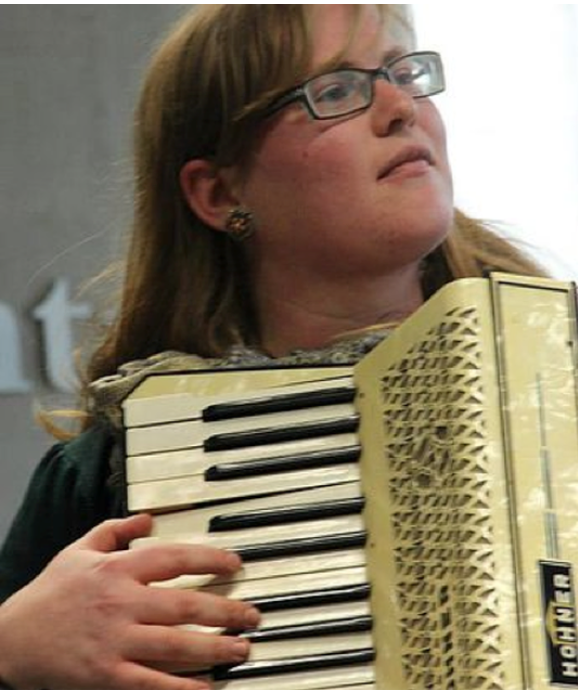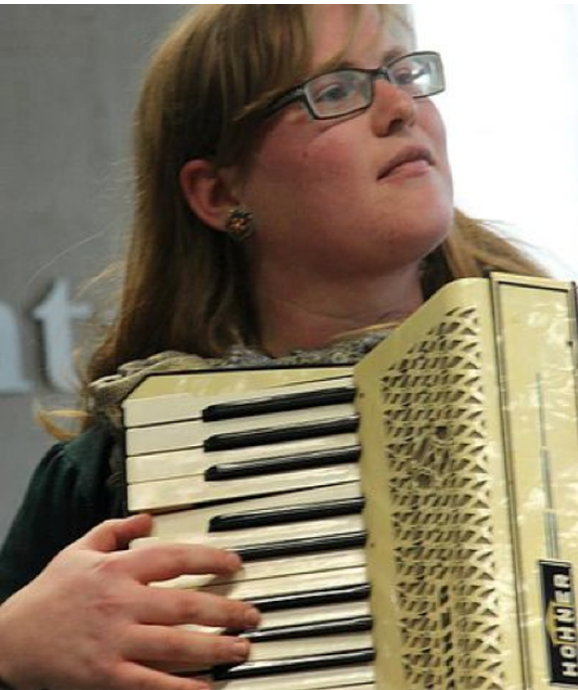What is Music Therapy? And how can it be used to help a person with dementia?


You may have read “Music Therapy sessions” written on an activity calendar in a long term care home, or you may have participated in a group session where everyone is situated in a circle and the music therapist is asking your loved one’s “Does anyone know the name of this song? or “I wonder who sang this particular tune?” Perhaps you’re wondering what is a music therapist and what do they do?
Music therapy is a discipline in which credentialed professionals (MTA*) use music purposefully within therapeutic relationships to support development, health, and well-being. Music therapists use music safely and ethically to address human needs within cognitive, communicative, emotional, musical, physical, social, and spiritual domains.*Music Therapist Accredited (Definition from the Canadian Association of Music Therapists)
Music therapy sessions may be conducted individually or in group settings. When a music therapist first begins working with an individual their strengths and needs are assessed and then a treatment plan with goals and objectives is tailored to suit the needs of each person.
Training: Accredited music therapists, MTA, complete a Bachelor or a Graduate Certificate in music therapy and a 1000-hour supervised clinical internship.
Within dementia care music may be used to promote and maintain cognitive functioning, motor and social skills and provide an outlet to connect with one’s spirituality and with one’s self.
Due to the uniqueness of each person music therapy individual and group sessions never look the same, however music therapy interventions may include:
- Recreating music, engaging the individual in active music making through singing and playing an instrument. Themes are used for sessions, which help to orient the person to the time of year and time of day.
- Listening to live music provided by the music therapist to encourage relaxation
- Moving to recorded/live music to engage and promote fine and gross motor skills.
- Song Writing: engaging the individual in coming up with lyrics/words of a song to promote creativity and engage socially.
- Promote and Facilitate Cognitive functioning through fill-in-the-blank songs and being prompted by questions such as “Does this song bring back any memories for you?”
Benefits of music therapy for persons with dementia
- Music aids memory recall
- Music helps decrease agitation and aggression for individuals diagnosed with dementia
- Music therapy helps reduce depression and loneliness among seniors
- Provides an opportunity for self-expression through singing/playing an instrument
Oliver Sacks, a neurologist, who an advocate of music therapy, wrote, “Music is part of being human…To those lost in dementia, music can have a power to restore them to themselves, and to others, at least for a while.” I find the idea of music having power for someone to return to themselves both true and powerful!
(Oliver Sacks, M.D./Author Musicophilia: Tales of Music and the Brain)
I have seen time and time again the power of music in my own work and in my own life. Music helps us connect to others and to ourselves. When in a music therapy session I am amazed at how a person can be transformed from perhaps sitting with a blank look on their face to remembering the lyrics to a song, engaging with others, toes tapping on the floor and they are restored, they are back to themselves. It’s as if familiar music has turned on a light inside, there is an awakening an awareness of “This is me, This is who I am.” To me when a person is reminded of who they are through music is the biggest honor of my job as a music therapist. It is an honor and privilege for me as a clinician to be part of someone’s inner world, even if only for a little time.
A few years ago I worked with a woman named Sandy (whose name has been changed for confidentiality reasons), she lived in two worlds. In one part of the day she was cognitively in her twenties and in another she realized she was in her nineties. The first time I met her she was sitting in her chair, seemingly deep in sleep. When I started singing, “Pack up all my cares and woes,” her head tilted up, she became engaged and she began to sing with me. It was as if the music of her youth turned a light on inside of her saying “wakeup.” Another time I was working with her we sang Edelweiss. She pointed to her heart and said that you could feel the music right there. It was then I knew she understood and connected with this song on a deep and personal level. I found this moment with her to be especially poignant as she was raised in a time where it was not common to talk about one’s feelings and how one was doing emotionally. Talking about one’s emotions have changed over the years and now it is more common for people to talk about how they feel, however I have found for the generation that was brought up during the war years emotions are seldom acknowledged or talked about. I have remembered Sandy’s joyful and energetic personality throughout the years and I will continue to remember her with fondness and deep respect as I continue my work in this rewarding field.
Tips on engaging a person with dementia in a setting with live music
Adapted dancing- Hold the person’s hands while moving to the rhythm of the music for a waltz/slower song
Engage the person with a question: Does this song bring back memories for you? If so, which ones? Do you know who sings this song? This reminds me of…
Playing an instrument: Use a shaker or tambourine with the person to play along with the rhythm of the music. You can hold their hand and play together or have the person hold their hand on the instrument while you tap along.
Resources for learning more about Music Therapy and Dementia
Websites:
- Canadian Association of Music Therapists https://www.musictherapy.ca
- Atlantic Association for Music Therapists http://www.atlanticmusictherapy.ca
Books:
- Music Therapy in Dementia Care, David Aldridge (Editor)
- Connecting Through Music with People with Dementia: A Guide for Caregivers, Robin Rio (Author)
Film:
- I’ll be me Documentary 2014: Glen Campbells’ shows his journey with Alzheimers’ disease and the power of music in his life.
- The Music Never Stopped 2011: This film highlights the work of a music therapist using music with a person who has had a traumatic brain injury and using music to access his memories. This film shows what a music therapist might do in an individual session.
- Sarah Bell With a master’s degree in music therapy from Concordia University’s Creative Arts Therapies program, Sarah Bell has lived and worked in Saint John, New Brunswick, as a music therapist for Arpeggio Music Therapy since July 2015. She works with a variety of populations including infants, outpatient and inpatient clients in psychiatric care, and residents in long term care. Sarah is passionate about the field of mental health as well as social justice and environmental issues. In her spare time she enjoys songwriting, travelling, reading, hiking, and playing music with friends.
